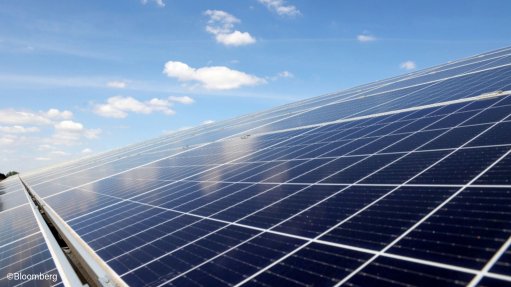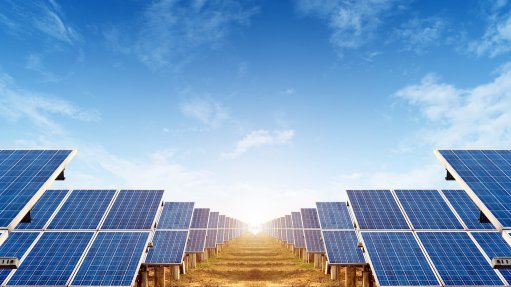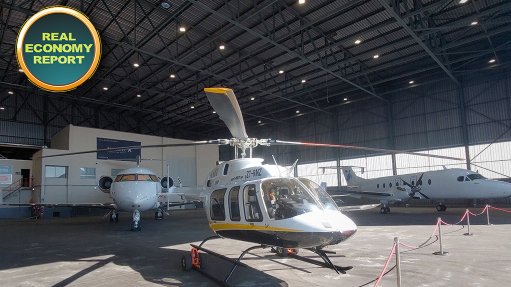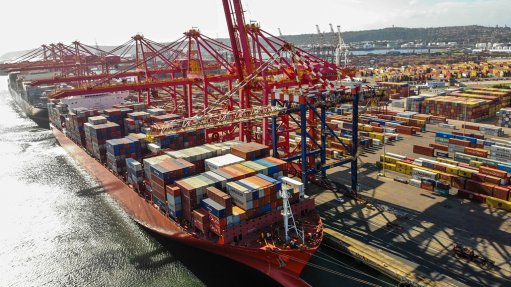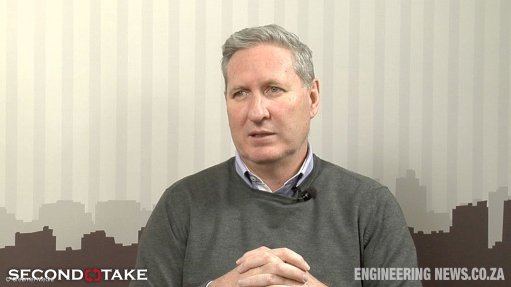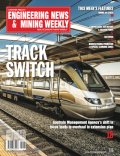Panel discusses importance of ecological infrastructure in combatting climate change
In acknowledgement of International Day for Biological Diversity, on May 22, the Council for Scientific and Industrial Research (CSIR), an entity of the Department of Science, Technology and Innovation, in collaboration with the South African National Biodiversity Institute (SANBI) hosted a webinar on the state of South Africa’s naturally functioning ecosystems, known as ecological infrastructure.
The discussion focussed on the ability of ecological infrastructure to continue providing essential ecosystem services such as water security, despite the challenges brought on by activities from environmental and developmental changes.
During the discussion, CSIR researcher Dr Phumza Ntshotsho noted that, while nine planetary boundaries, which speak to the capacity of planet Earth to sustain life, have been established, six of the boundaries have been exceeded, meaning that people are “critically endangering planet earth's ability to support life on earth”.
“We are living on borrowed time,” she said, adding that “we're not just a planet in distress, but we're also a country in distress”.
Ntshotsho noted that, according to the National biodiversity assessment conducted by SANBI, about 50% of South African ecosystems are categorised as threatened.
She described this biodiversity loss, which is exacerbated by land degradation, as a significant issue, noting that it impacts natural ecosystems as well as personal well-being.
“This phenomenon of degraded ecosystems is not just a global phenomenon, but it also [is] quite relevant at the local scale”.
Despite persisting challenges, Ntshotsho expressed that “there is hope”, explaining that South Africa is signatory to several international agreements, such as the United Nations Framework Convention on Climate Change and the United Nations Convention to Combat Desertification.
She argued, however, that urgent action is needed to avoid, reduce and reverse land degradation.
“The window of opportunity, the window to act is fast closing. If planet earth tips over the edge, we may see ourselves living in an inhabitable planet or facing difficulties in terms of reversing the tide,” she warned.
Ntshotsho thus argued for ecological restoration and ecosystem-based adaptation to address biodiversity loss and ecosystem degradation.
Ecological restoration is the process of assisting the recovery of an ecosystem that has been degraded, damaged or destroyed, which includes reducing societal impacts that speak to, for example, individual actions such as being conscious of consumption patterns.
Additionally, ecosystem-based adaptation uses biodiversity and ecosystem services to help communities adapt to the impacts of climate change. It involves managing, conserving and restoring ecosystems to ensure they continue providing the services needed to preserve the well-being of humanity.
Ntshotsho explained that ecosystem-based adaptation helps people adapt to the negative impacts of climate change and makes use of biodiversity.
She thus argued that it should be part of an overall adaptation strategy.
“We're in a fortunate position in South Africa, because we are quite advanced in terms of policies and legislation that speak to the climate change response effort, and specifically climate change adaptation.”
While conservation efforts have largely been driven by government, she posited that everyone can play a role in conserving, protecting and restoring degraded ecosystems.
“With improved awareness, I believe there will be action, and we can turn the tide, make sure, or rather improve the chances, of developing sustainably, so that there is a habitable planet, not just for the current generations, but for the future generations as well”.
Comments
Press Office
Announcements
What's On
Subscribe to improve your user experience...
Option 1 (equivalent of R125 a month):
Receive a weekly copy of Creamer Media's Engineering News & Mining Weekly magazine
(print copy for those in South Africa and e-magazine for those outside of South Africa)
Receive daily email newsletters
Access to full search results
Access archive of magazine back copies
Access to Projects in Progress
Access to ONE Research Report of your choice in PDF format
Option 2 (equivalent of R375 a month):
All benefits from Option 1
PLUS
Access to Creamer Media's Research Channel Africa for ALL Research Reports, in PDF format, on various industrial and mining sectors
including Electricity; Water; Energy Transition; Hydrogen; Roads, Rail and Ports; Coal; Gold; Platinum; Battery Metals; etc.
Already a subscriber?
Forgotten your password?
Receive weekly copy of Creamer Media's Engineering News & Mining Weekly magazine (print copy for those in South Africa and e-magazine for those outside of South Africa)
➕
Recieve daily email newsletters
➕
Access to full search results
➕
Access archive of magazine back copies
➕
Access to Projects in Progress
➕
Access to ONE Research Report of your choice in PDF format
RESEARCH CHANNEL AFRICA
R4500 (equivalent of R375 a month)
SUBSCRIBEAll benefits from Option 1
➕
Access to Creamer Media's Research Channel Africa for ALL Research Reports on various industrial and mining sectors, in PDF format, including on:
Electricity
➕
Water
➕
Energy Transition
➕
Hydrogen
➕
Roads, Rail and Ports
➕
Coal
➕
Gold
➕
Platinum
➕
Battery Metals
➕
etc.
Receive all benefits from Option 1 or Option 2 delivered to numerous people at your company
➕
Multiple User names and Passwords for simultaneous log-ins
➕
Intranet integration access to all in your organisation









